Sigue bajando para la versión en español
Hey there, Hive!✨
I'm back in this wonderful community to talk about a trilogy of books that captivated me in my teens and that I still consider to be a great series of novels for young adults. The Hunger Games were very successful books, especially after their adaptation to the big screen. And believe me, that fame they had is well deserved.
I have to admit that I haven't read the most recent book yet, which is a prequel (sorry), but I will talk about the three main ones with spoilers.
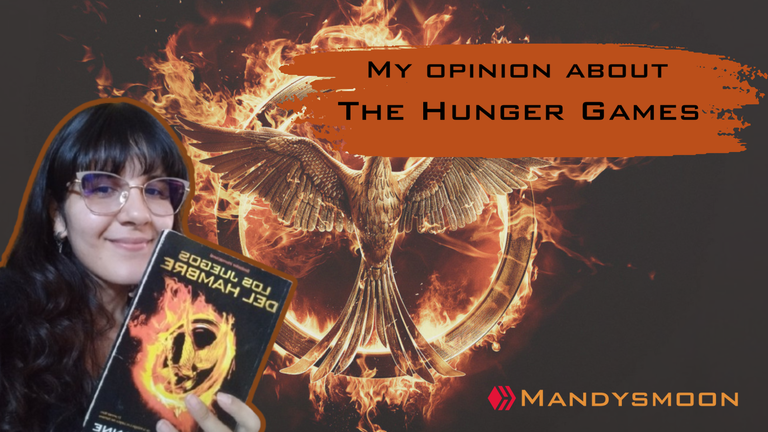

Synopsis
The country of Panem is where the events of this dystopian story take place. In this country there are 12 districts and a Capitol, depending on where you are, life smiles on you or you have the worst of luck. If you are in a district, they are succumbing to poverty (some more than others), if you are one of the lucky ones in the Capitol, you live the best of lives in abundance of both money and eccentricities.
Speaking of eccentricities, there is a peculiar annual tradition called The Hunger Games, where each district must offer a boy and a girl as tribute to participate in this televised celebration that is nothing more than a battle for survival, where all the tributes must fight until only one survives. Each year, tributes are drawn, increasing the number of chances of being selected each time you participate in the drawing, which begins when the person turns 12... Thus, Katniss Everdeen's luck would be put to the test.
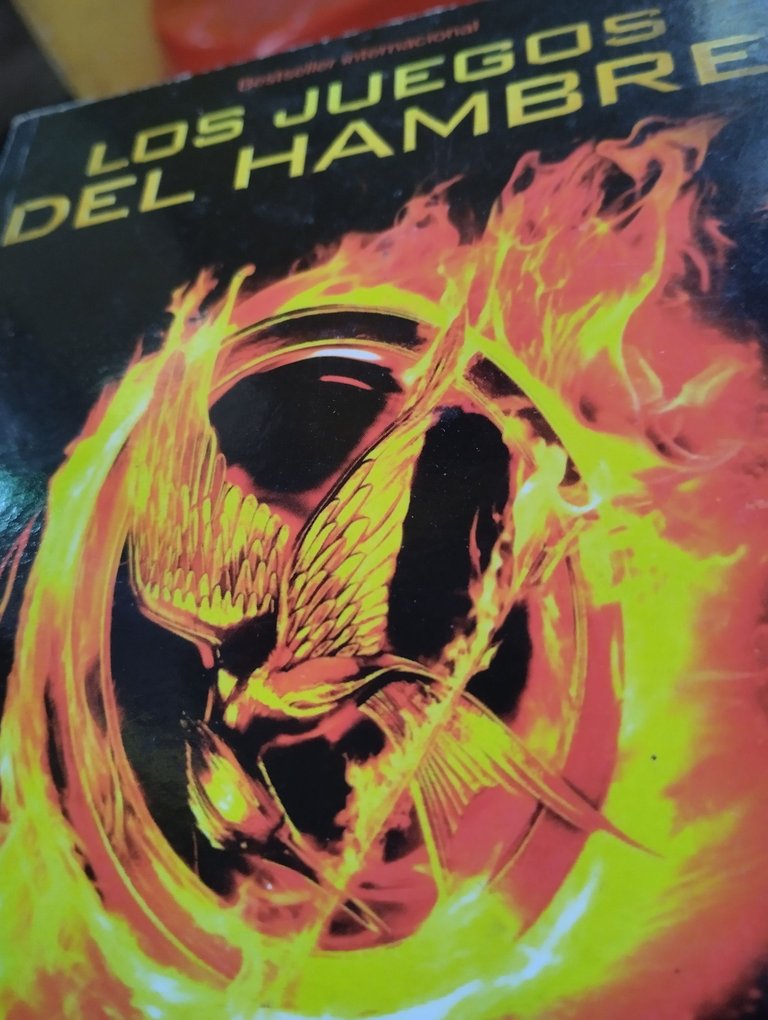
Pictures of the copy of the book I own in Spanish

The world created by Collins is a post-apocalyptic, dystopian scenario, which presents what North America would be like after many wars. The author took ideas from Greek mythology and the Roman gladiator games, giving them her own interpretation, making them more tragic due to the exclusive participation of children, giving greater tension by describing that each year the chances of being selected increase, as well as the poor living conditions of those who do not participate, so going or not going to the Games for many did not make a big difference.
The world of these novels is constructed in detail, throughout the story they explain well how it works, its past, its present and all the implications for the protagonists. They are not heavy novels, in fact, they are quite short, so the details are punctual, it does not extend too much in explaining things but it says what is necessary to understand everything. This makes the book, despite dealing with heavy subjects, very digestible for the young readers it is aimed at, so the author did an excellent job of adapting her narrative to her audience.
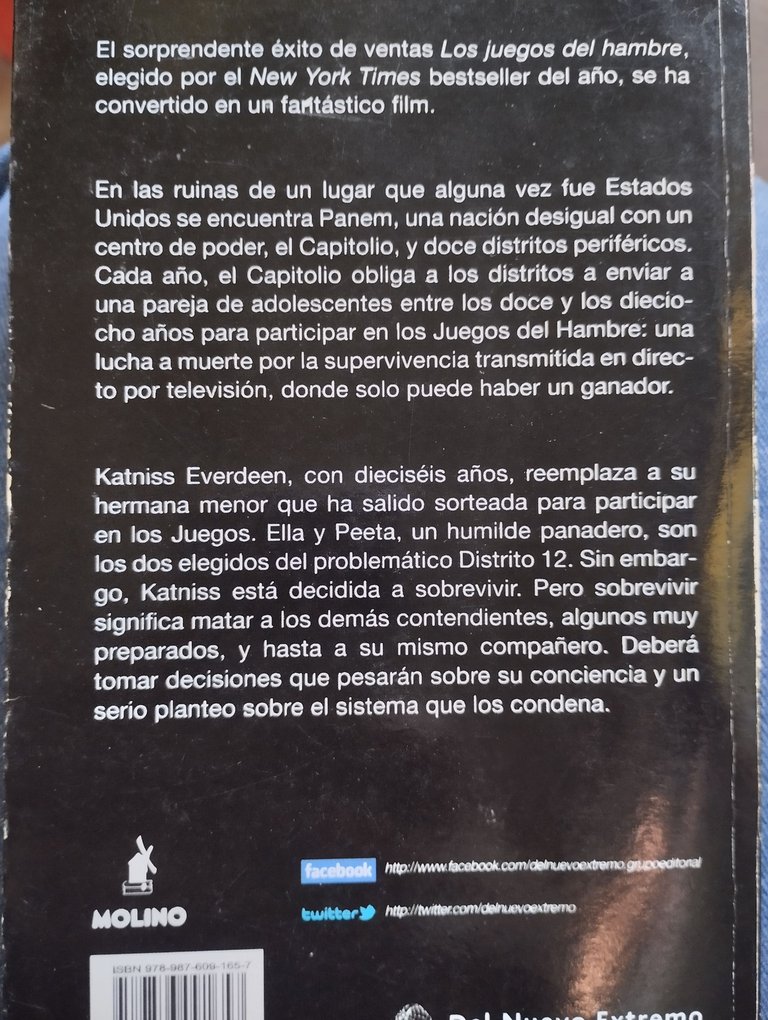 | 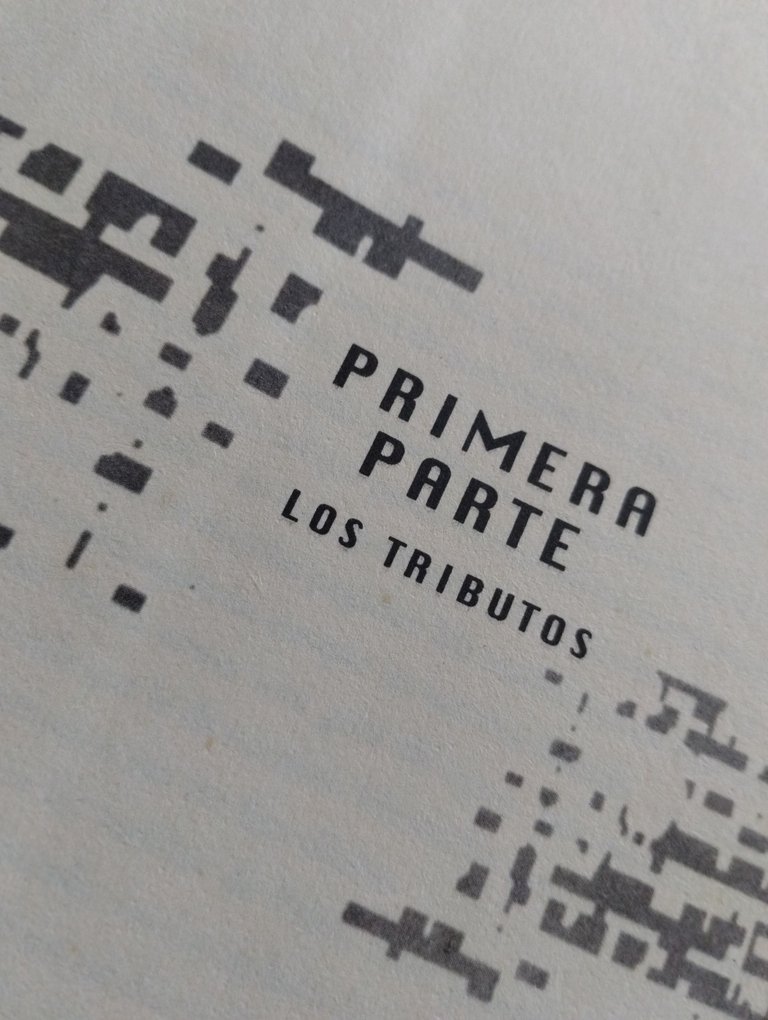 |
|---|
This is how she managed to raise a strong social criticism in a light novel, since she maintained the right balance between the narration, the central message, the amount of detail and the more romantic aspects of the story. We see Katniss's life up close, everything that happens to her and her emotions, but we know that at the same time a revolution begins that tries to change the status quo from its foundations to finally do justice after so many years. Perhaps this social change goes a little unnoticed in this first book since it is much more evident in the following ones, but for the more detailed reader it is clear.
On the other hand, the kind of reality show that we see in the Games is the most obvious criticism. There are tributes at press conferences, they stay in luxury hotels, they dress in the hands of prestigious designers, they live a short dream life until they are sent like lamb to the slaughterhouse, where the murders are televised for the enjoyment of the elite but also of those who have no other option but to watch. Here we clearly see how bad society is, since although live murders are not yet televised, the truth is that in the culture of consumerism, anything is televised or published (posted), even the most private matters, to generate a morbidness in the audience that only feeds the pockets of the wealthiest. Those in turn, will take advantage of any vulnerable person to increase their wealth. That is the world Katniss lives in, it is also our world.
We have become so insensitive that we simply observe the tragedies of others, either with indifference, helplessness or a mixture of both, but finally normalizing fatality. How many children like Rue, for example, have there been in the world? How many people have sacrificed themselves like Katniss for her sister Prim? Why do we have to see every detail of someone's personal life to make fun of or criticize them? Why does no one do anything about it? Because human beings are morbid.
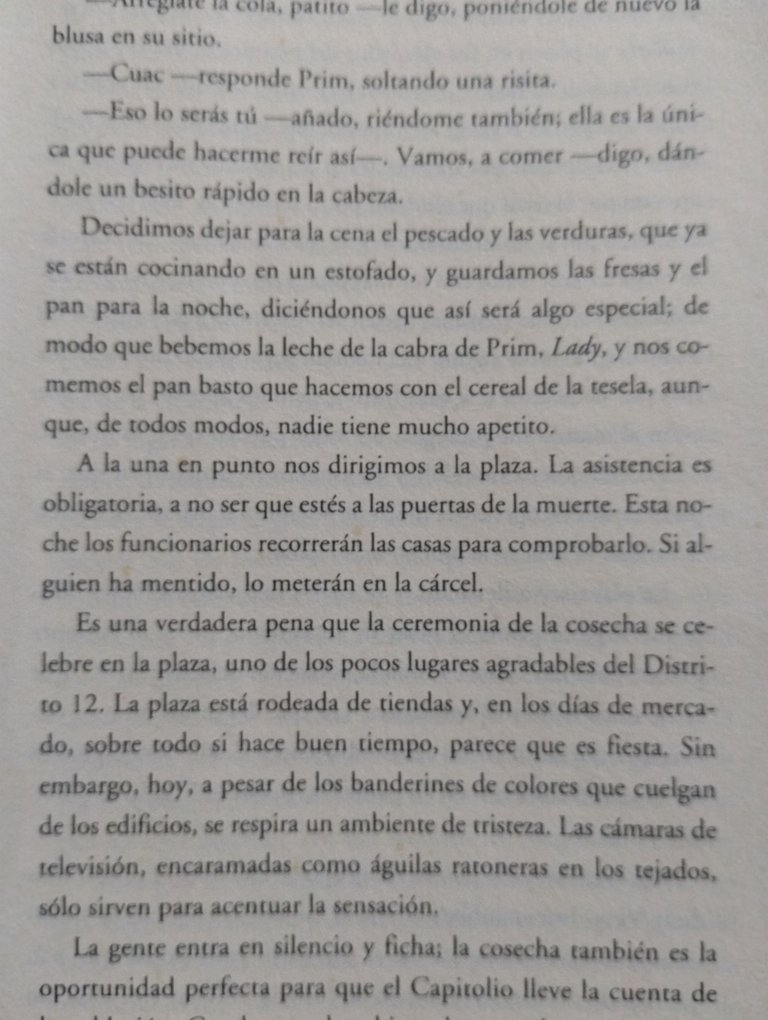 | 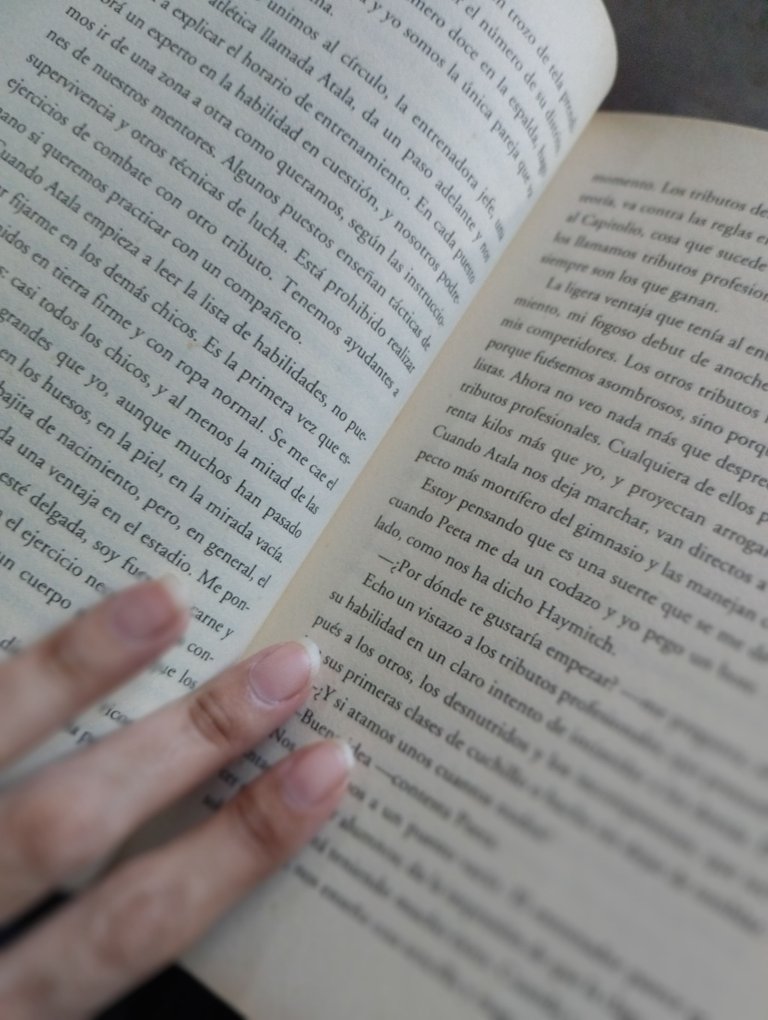 |
|---|
The relief from all the tragedy of this book is the romantic part, the love triangle between Gale, Katniss and Peeta and all those typical doubts of hormonal teenagers. Don't get me wrong, I'm not saying it in a bad way because that's what the protagonists are, very young people. That's why reading these parts was the quiet part of the novel and what diverts the attention a little, which may be necessary considering the type of book it's supposed to be; otherwise it would be a novel of another genre that would be much heavier.
Honestly, the love triangle seems to me one of the least unbearable because it's not Katniss' priority. It's something that's there, it's something she reflects on but not too much, since what's obviously important is everything else. Apart from that, the role that Katniss begins to take is that of the flag of the revolution, which reminds me a lot of what the figure of Joan of Arc was, that is, a symbol of hope, although this is developed better later on, but it is from the beginning where Katniss falls prey to causality, where everything led her irremediably to be part of the uprising against the Capitol.
At the same time, her personality is complex since it is extremely marked by post-traumatic stress and perhaps by Borderline Personality Disorder, making her a tough, independent, pragmatic, ingenious person, but also with considerable socialization problems, impulsive, depressive, avoidant to disorganized attachment, among other aspects that make her an interesting protagonist since she does not fit the profile of a heroine, nor an antihero or villain, she is simply someone very affected by her experiences who tries to survive as best she can. This is something new in novels for teenagers, where it is typical to find much simpler protagonists.
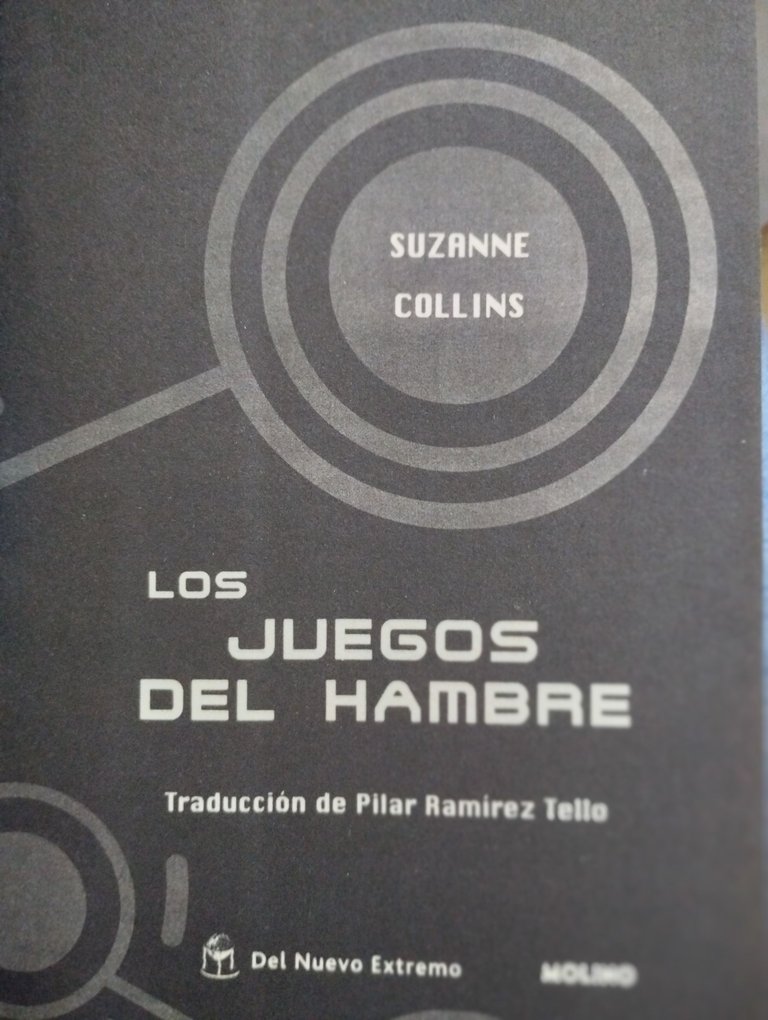
It is for these reasons that I find it an incredible and unusual book in its genre, which really hooks you from the beginning and manages to convey a lot in just a few pages. Although it is for teenagers, it should not be underestimated, since the author has great talent for telling stories that could be too complex in an easily understandable way while still being very entertaining. So I will always recommend both this and the other two books, which I will talk about soon in other posts.




Español
¡Hola, Hive!✨
Estoy de nuevo en esta maravillosa comunidad para hablar de una triología de libros que me cautivó en mi adolescencia y que aún considero que es una serie de novelas geniales para adultos jóvenes. Los Juegos del Hambre fueron unos libros muy exitosos, sobretodo después de su adaptación a la pantalla grande. Y créanme que esa fama que tuvieron es bien merecida.
He de admitir que aún no leo el libro más reciente que es una precuela (sorry), pero hablaré de los tres principales con spoilers.
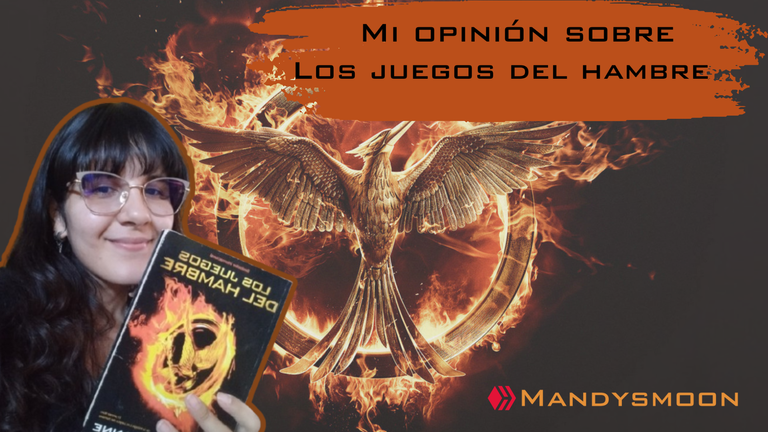

Sinopsis
El país de Panem es donde ocurren los hechos de esta historia distópica. En dicho país existen 12 distritos y un Capitolio, dependiendo de donde estés la vida te sonríe o corres la peor de las suertes. Si estás en un distrito estos están sucumbiendo ante la pobreza (algunos más que otros), si eres de los afortunados del Capitolio vives la mejor de las vidas en abundancia tanto de dinero como de excentricidades.
Hablando de excentricidades, existe una peculiar tradición anual llamada Los Juegos del Hambre, en donde cada distrito debe ofrecer a un chico y una chica como tributo para participar en este festejo televisado que no es más que una batalla por supervivencia, en donde todos los tributos deberán luchar hasta que solo uno sobreviva. Cada año se sortean los tributos, aumentando el número de probabilidades de ser seleccionados cada vez que se participa en el sorteo, lo cual inicia cuando la persona cumple 12 años... Así, la suerte de Katniss Everdeen sería puesta a prueba.


El mundo creado por Collins es un escenario post apocalíptico, distópico, que plantea lo que sería Norte América luego de muchas guerras. La autora tomó ideas de la mitología griega y los juegos del gladiador romanos dándoles su propia interpretación, haciéndolos más trágicos por la participación exclusiva de niños, dándole mayor tensión al describir que cada año aumentan las posibilidades de ser seleccionado, así como las pobres condiciones de vida en la que se encuentran aquellos que no participan, por lo que ir o no a los Juegos para muchos no suponía mayor diferencia.
El mundo de estas novelas está detalladamente construído, a lo largo de la historia te explican bien cómo funciona, su pasado, su presente y todas las implicaciones para los protagonistas. No son novelas pesadas, de hecho, son bastante cortas, por lo que los detalles son puntuales, no se extiende demasiado en explicar las cosas si no que se dice lo necesario para comprender todo. Esto hace que el libro a pesar de tratarse de temas fuertes sea muy digerible para los lectores jóvenes a los que está dirigido, así que la autora hizo un excelente trabajo al adaptar su narración a su público.
 |  |
|---|
Es así como logró plantear una fuerte crítica social en una novela ligera, puesto que mantuvo el equilibrio adecuado entre la narración, el mensaje central, la cantidad de detalle y los aspectos más románticos de la historia. Vemos la vida de Katniss de cerca, todo lo que le ocurre y sus emociones, pero sabemos que a la par se da el inicio de una revolución que intenta cambiar el status quo desde sus cimientos para finalmente hacer justicia luego de tantos años. Quizá ese cambio social pasa un poco desapercibido en este primer libro puesto que es mucho más evidente en los siguientes, pero para el lector más detallista es claro.
Por otro lado, la especie de reality show que vemos en los Juegos es la crítica más evidente. Están los tributos en ruedas de prensa, se quedan en hoteles de lujo, se visten de la mano de diseñadores prestigiosos, viven una breve vida de ensueño hasta que son enviados como carne de cordero al matadero, donde los asesinatos son televisados para el disfrute de la élite pero también de aquellos que no tienen otra opción más que observar. Aquí vemos claramente lo mal que está la sociedad, puesto que aunque aún no se llegan a televisar asesinatos en vivo, lo cierto es que en la cultura del consumismo se televisa o publica cualquier cosa, hasta las cuestiones más privadas, para generar un morbo en la audiencia que solo alimenta los bolsillos de los más pudientes. Estos a su vez, se aprovecharán de cualquier persona vulnerable para hacer crecer su riqueza. Ese es el mundo en que vive Katniss, también es nuestro mundo.
Nos hemos vuelto tan insensibles que simplemente observamos las tragedias de otros, bien con indiferencia, impotencia o una mezcla de ambos, pero finalmente normalizando la fatalidad. ¿Cuántos niños como Rue, por ejemplo, han habido en el mundo? ¿Cuántas personas no se han sacrificado como Katniss por su hermana Prim? ¿Por qué tenemos que ver cada detalle de la vida personal de alguien desconocido para burlarnos o criticar? ¿Por qué nadie hace nada al respecto? Porque el ser humano es morboso.
 |  |
|---|
El alivio de toda la tragedia de este libro es la parte romántica, el triángulo amoroso entre Gale, Katniss y Peeta y todas esas dudas típicas de adolescentes hormonales que no me malinterpretes, no lo digo a mal pues eso es lo que son los protagonistas, unos pequeños. Por ello leer estas partes era lo tranquilo de la novela y lo que desvía un poco la atención, cosa que puede ser necesaria considerando el tipo de libro que se supone que es; sino sería una novela de otro género que sería mucho más pesada.
Honestamente el triángulo amoroso me parece uno de los menos insufribles porque no es la prioridad de Katniss. Es algo que está allí, es algo en lo que reflexiona pero no demasiado, puesto que lo evidentemente importante es todo lo demás. Aparte el papel que comienza a tomar Katniss es el de la bandera de la revolución, lo que me recuerda mucho a lo que fue la figura de Juana de Arco, es decir, un símbolo de esperanza, aunque esto se desarrolla mejor más adelante, pero es desde el incio donde Katniss cae presa de la causalidad, donde todo la llevo irremediablemente a ser parte del levantamiento contra el Capitolio.
A su vez, su personalidad es compleja puesto que está sumamente marcada por el estrés post traumático y puede que por el Trastorno Límite de la Personalidad, convirtiéndola en una persona dura, independiente, pragmática, ingeniosa, pero también con considerables problemas de socialización, impulsiva, depresiva, de apego evitativo a desorganizado, entre otros aspectos que la hacen una protagonista interesante puesto que no encaja en el perfil de la heroína, tampoco en un antihéroe ni villana, ella simplemente es alguien muy afectada por sus vivencias que intenta sobrevivir lo mejor que puede. Esto resulta novedoso en las novelas para adolescentes, donde es típico encontrar a protagonistas mucho más simples.

Es por estas razones que me parece un libro increíble y fuera de lo común en su género, que realmente te deja enganchado desde el inicio y que logra transmitir mucho en pocas páginas. Aunque sea para adolescentes no debería subestimarse, puesto que la autora posee gran talento para contar historias que podrían ser demasiado complejas de una forma fácilmente comprensible sin dejar de ser muy entretenidas. Así que siempre recomendaré tanto éste como los otros dos libros, de los cuales hablaré pronto en otros posts.


